The history of the Rockettes: From St. Louis to Radio City
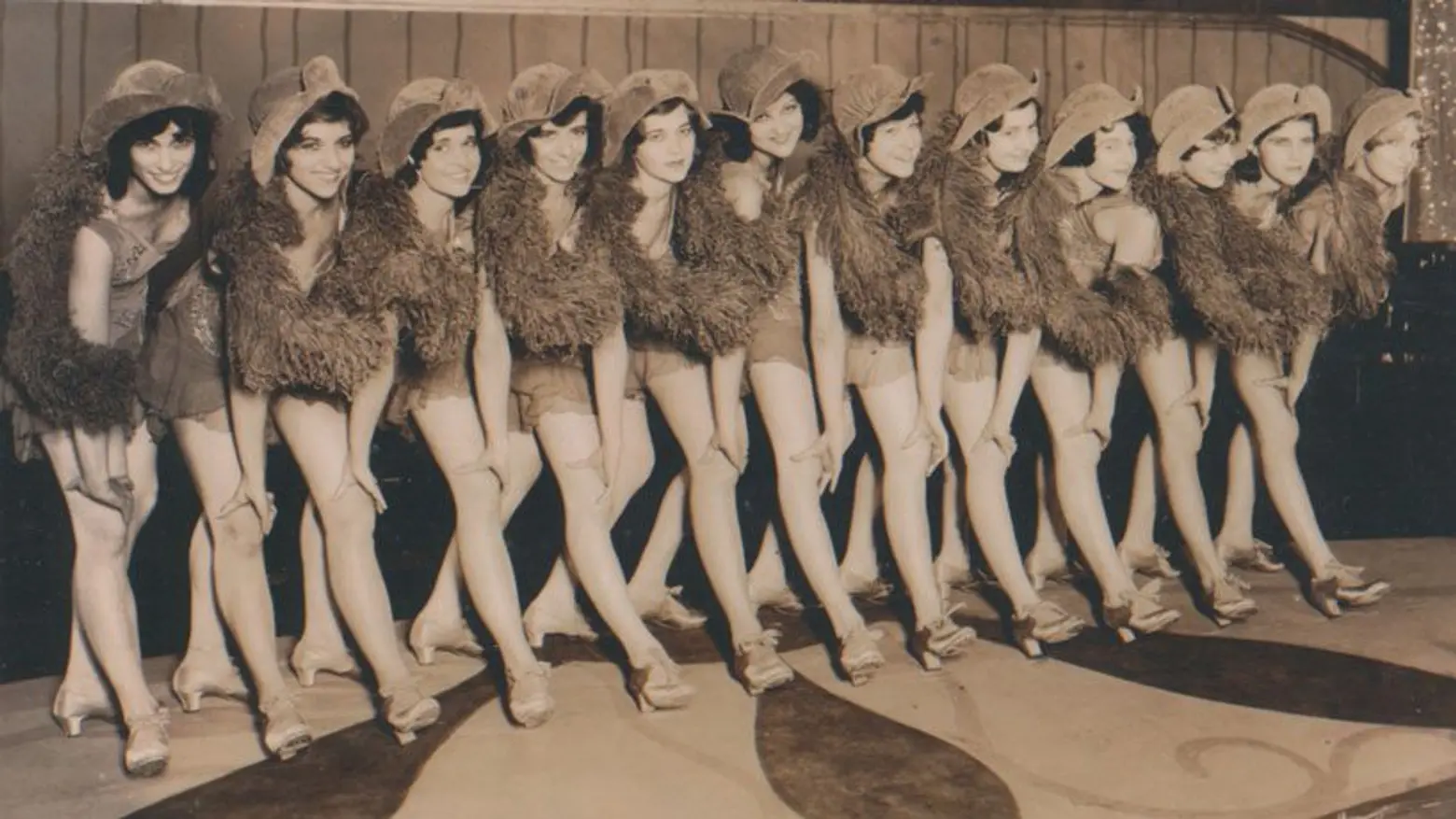
The Rockettes in 1925, courtesy of The Rockettes
For nearly a century, the Rockettes have been an icon of Christmas in New York. From humble St. Louis origins (no, the troupe was not formed in the Big Apple) to performing when Radio City Music Hall was in disrepair and shuttering for weeks at a time, they’ve managed to continue dancing throughout the decades. Not only that, they’ve emerged as America’s best known dance troupe. Here’s the incredible history of this small team of female dancers, who have pulled off astounding, razor-sharp choreography while also fighting for higher wages and the landmarks designation of Radio City. The Rockettes are a New York icon, but only after a hard-fought battle to keep performing in the city.
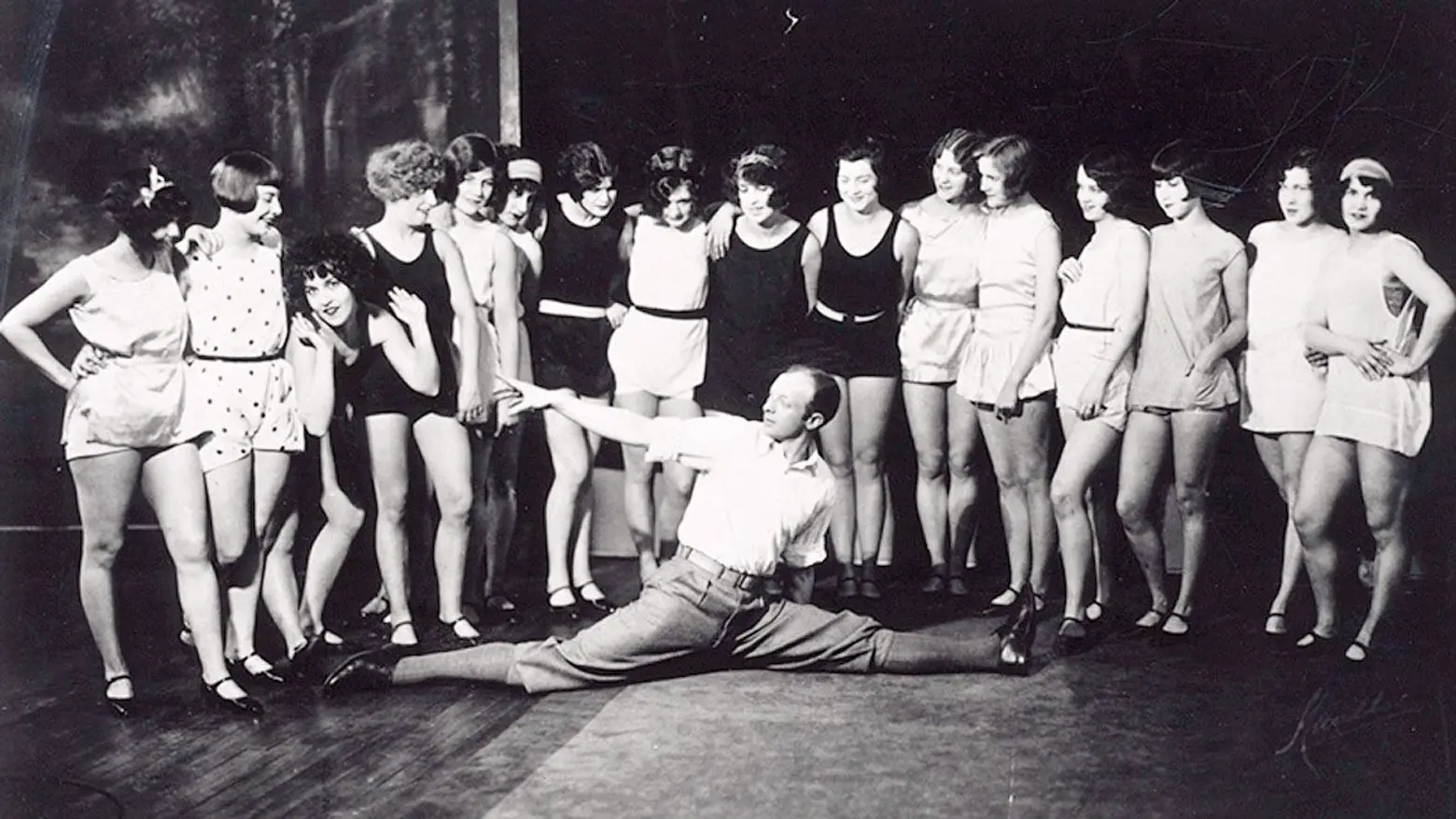 Russell Markert and the Missouri Rockets in 1925, courtesy of The Rockettes
Russell Markert and the Missouri Rockets in 1925, courtesy of The Rockettes
Russell Markert can be credited for establishing the group in the 1920s. The Rockettes’ chief choreographer, image-preserver and resident “father figure” founded the chorus line in 1925, inspired by a British dance troupe. According to the Rockette’s history, “Russell wanted to achieve absolute precision and ultimate uniformity in the movements of the dancers.” So he took on 16 women, all skilled dancers who fit the height requirement between 5’2″and 5’6 ½”, and formed what was then known as the “Missouri Rockets.” They made their show debut that year in St. Louis.
Soon after the troupe’s founding, they traveled to New York City to perform in the Broadway show Rain or Shine. There, the dancers were discovered by the showman S.L. “Roxy” Rothafel, who had earned a reputation as a theatrical genius by employing an innovative combination of vaudeville, movies and razzle-dazzle decor to revive struggling theaters across the country. Rain or Shine was such a success Rothafel pleaded with Markert to form another line to replace the departing dancers.
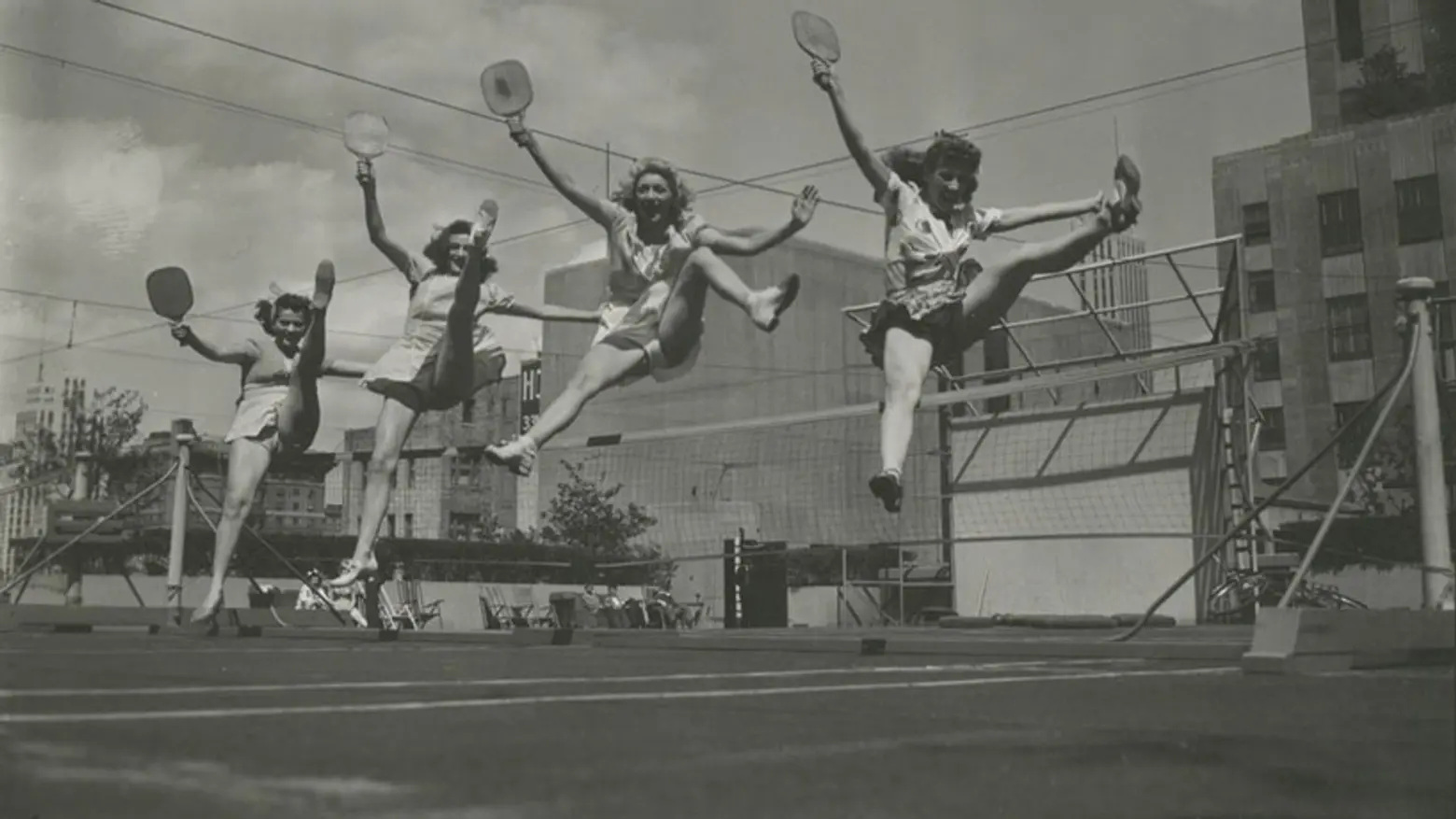 The Rockettes training in the 1930s
The Rockettes training in the 1930s
By the early 1930s, Markert was overseeing three separate dance troupes performing around the city. But Rothafel had bold plans for them in a new venue. He had partnered with John D. Rockefeller, Jr. to open a theater unlike any in the world, right in the heart of the new Rockefeller Center complex under construction at the time. Radio City Music Hall was the first completed project within the complex, envisioned as a “palace for the people” that everyday New Yorkers could afford to see world-class entertainment.
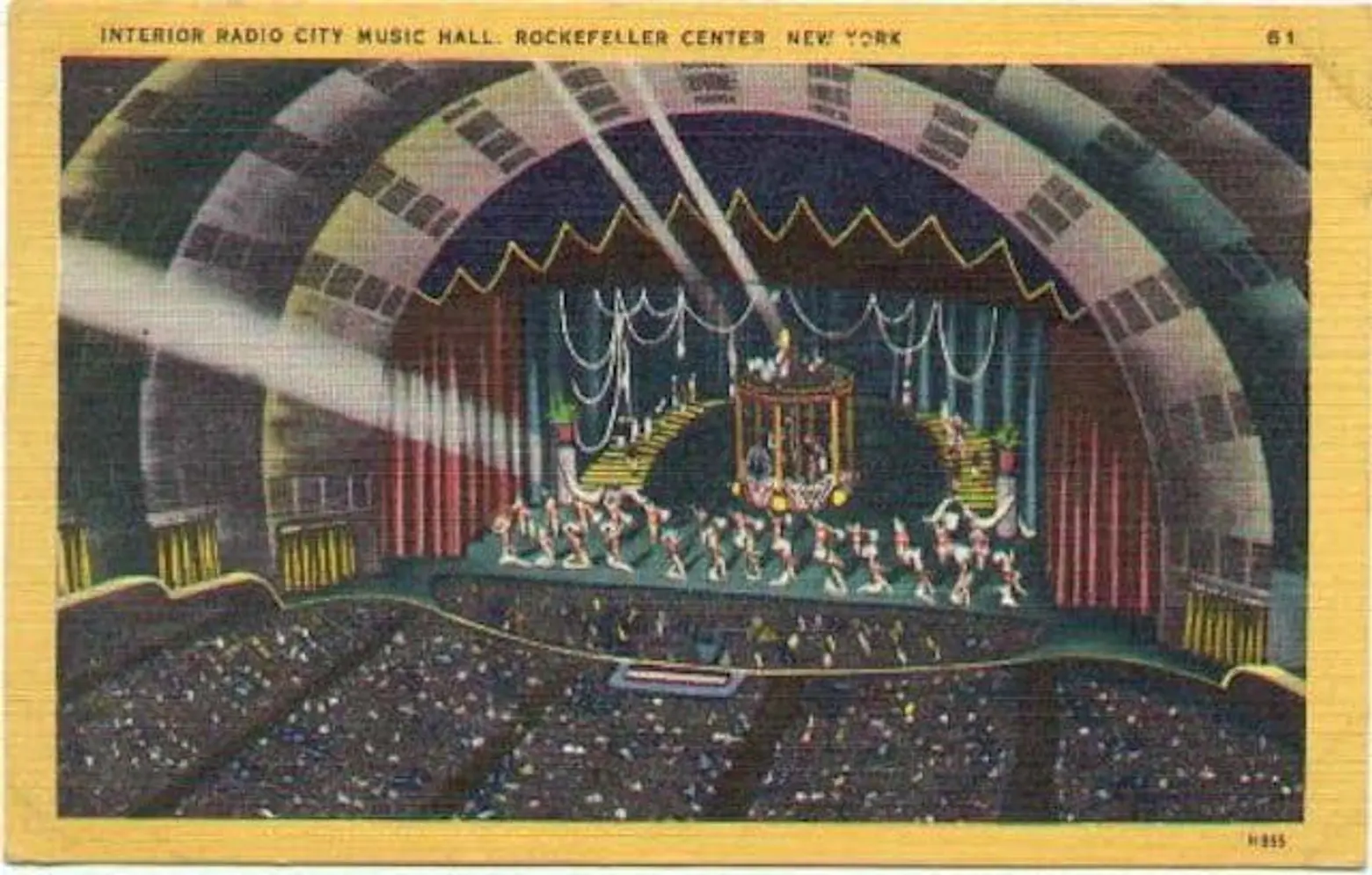 Opening night at Radio City Music Hall, courtesy of Radio City
Opening night at Radio City Music Hall, courtesy of Radio City
Opening night of the largest indoor theatre in the world was set for December 27th, 1932. It was considered “the hottest ticket in town”–more than 100,000 people requested admission, but only 6,200 got tickets. For opening night, Rothafel consolidated two of the dancing groups to perform a routine to the song “With a Feather in Your Cap.” He dubbed the group the Roxyettes.
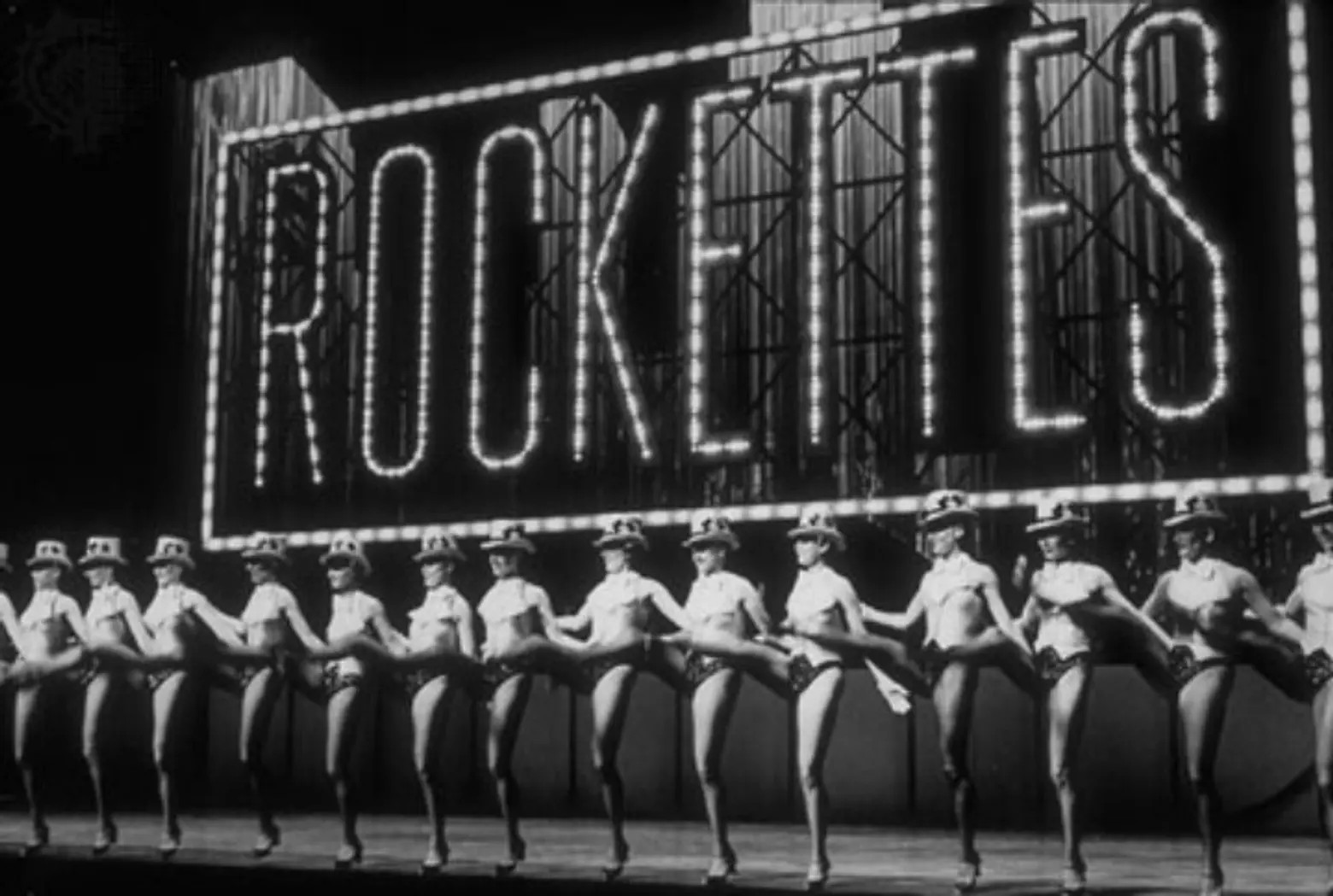 Courtesy of The Rockettes
Courtesy of The Rockettes
In 1934, the Roxyettes officially became the Radio City Music Hall Rockettes. But they didn’t have a dedicated show like the one you can catch today. In fact, only about one year after opening, Radio City was converted into a movie house. Radio City would feature a new movie every week, accompanied by a lavish and unique stage production starring the Rockettes.
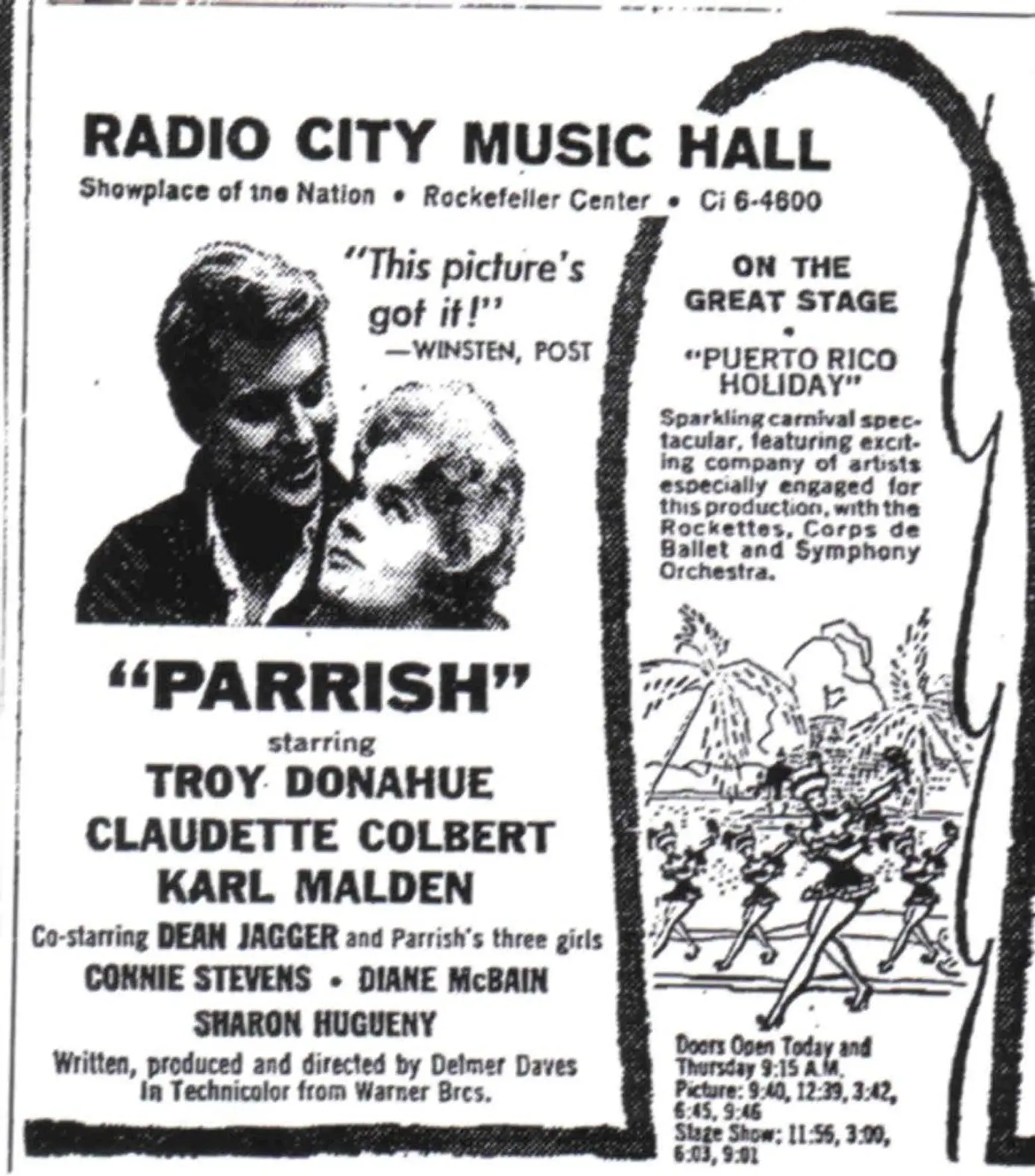 Advertisement for a film and performance condo, via Bowery Boys
Advertisement for a film and performance condo, via Bowery Boys
It was a demanding schedule that lasted until the 1950s. Radio City was showing world premiere movies together with Rockette stage shows, sometimes as many as five a day. The movies kept playing as long as there was demand for tickets… and their shows changed every time the movies did. So if a film failed at the box office, the Rockettes would quickly have to to rehearse the new show at dawn, midnight, and in between. To accomidate the demanding schedule, Radio City opened a 26-bed dormitory, cafeteria, recreation area, tailor shop and hospital with medical staff for the dancers.
The rest of the country got a taste for the hypnotizing dance routine when the group made its television debut in 1957, performing on the show “Wide, Wide World” as well as the Macy’s Thanksgiving Day Parade.
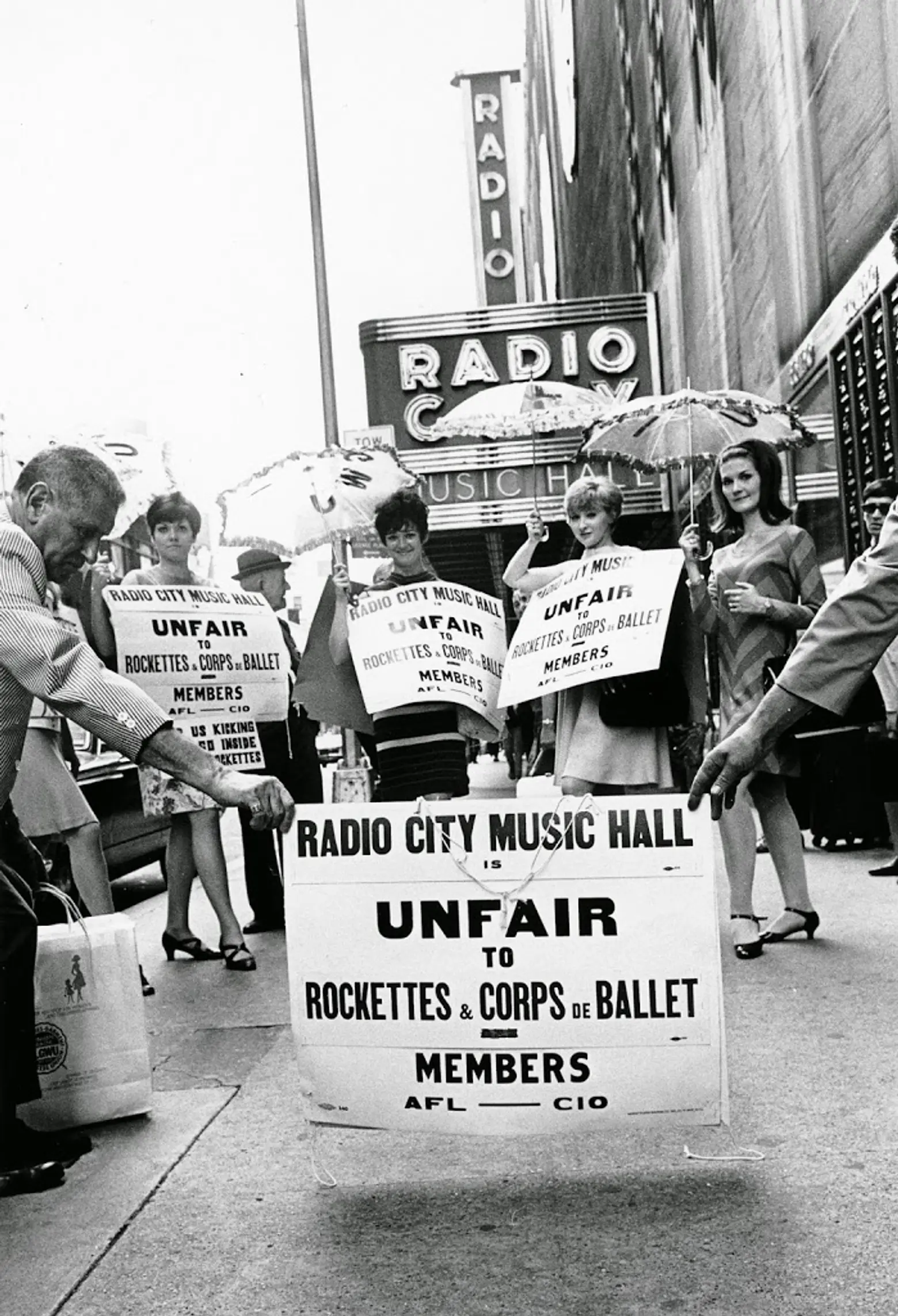 Rockettes on strike, via the Bowery Boys
Rockettes on strike, via the Bowery Boys
The 1960s brought new variety to the show. Social norms were changing, so the Rockettes raised their kicks and hemlines. They appeared in Radio City as Geisha girls, hula dancers, bull fighters, chimney sweeps and can-can dancers. And in 1967, they went on strike for a month to demand better wages to compensate for their vigorous schedule and unpaid rehearsal time.
As the city trudged into the “bad old days” of the 1970s, Radio City management began closing the theater for weeks at a time. Left with time on their hands, the dancers petitioned to take the show on the road. In 1977 they danced on the west coast, in Lake Tahoe. Crowds loved the precision-style dancing, and the group went on to play to sold-out crowds in Las Vegas.
Still, demand for grand entertainment was waning in New York City–Radio City was slated to close by 1978. The story was that the theater was losing money, and the performance format of movies and live theater was no longer attracting audiences. But it was the Rockettes who lead a crusade to save the iconic theater, joining their Radio City colleagues to form The Showpeople’s Committee to Save Radio City Music Hall.
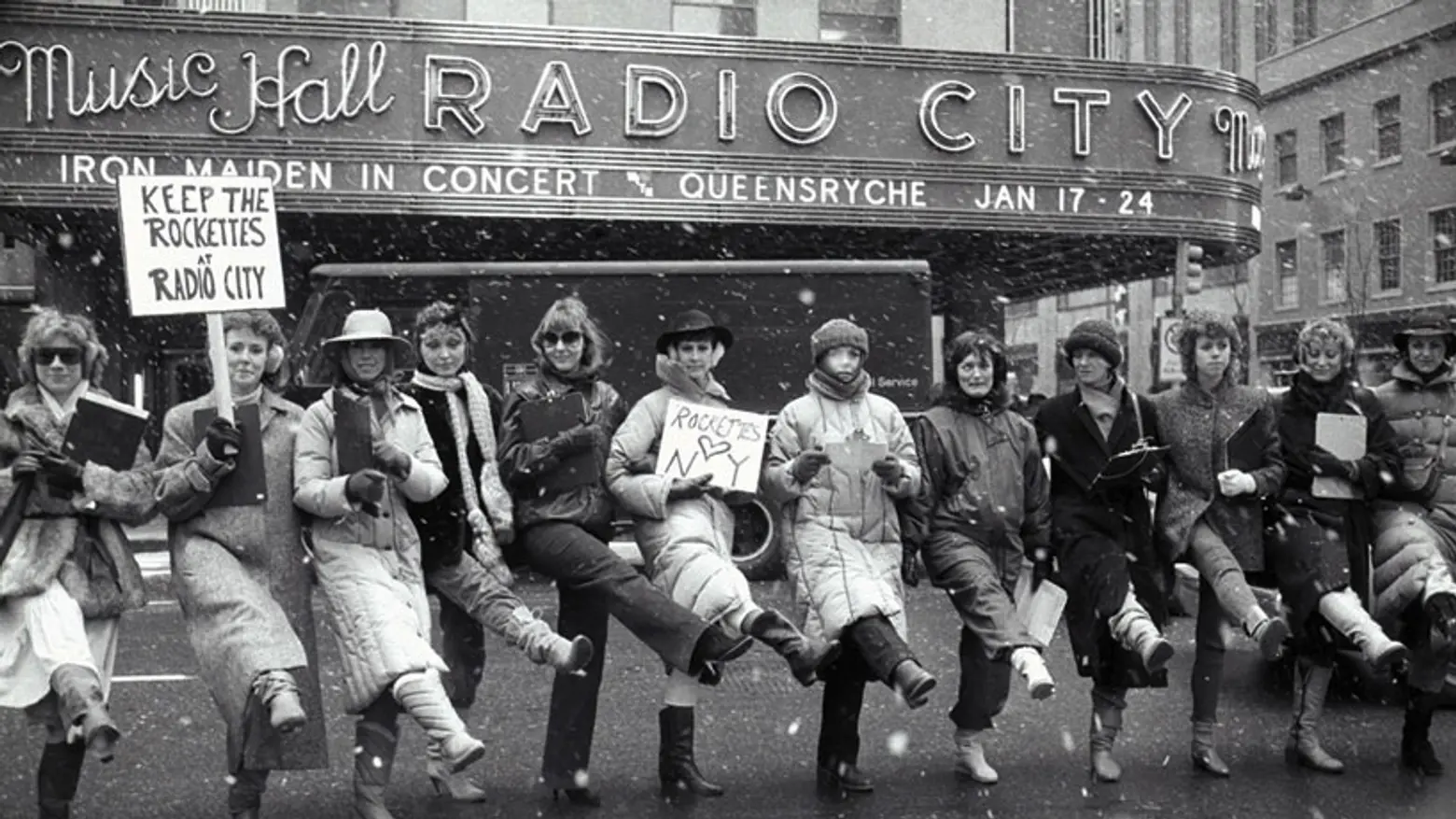 Courtesy of The Rockettes
Courtesy of The Rockettes
The group spent months organizing, motivating New York City and State politicians, celebrities, local businesses and loyal fans of the Music Hall to join them in what was considered a David and Goliath battle against the Rockefeller family. A letter writing campaign alone produced more than 150,000 signatures on petitions from all over the world. Eventually, the building was calendared to receive landmark status.
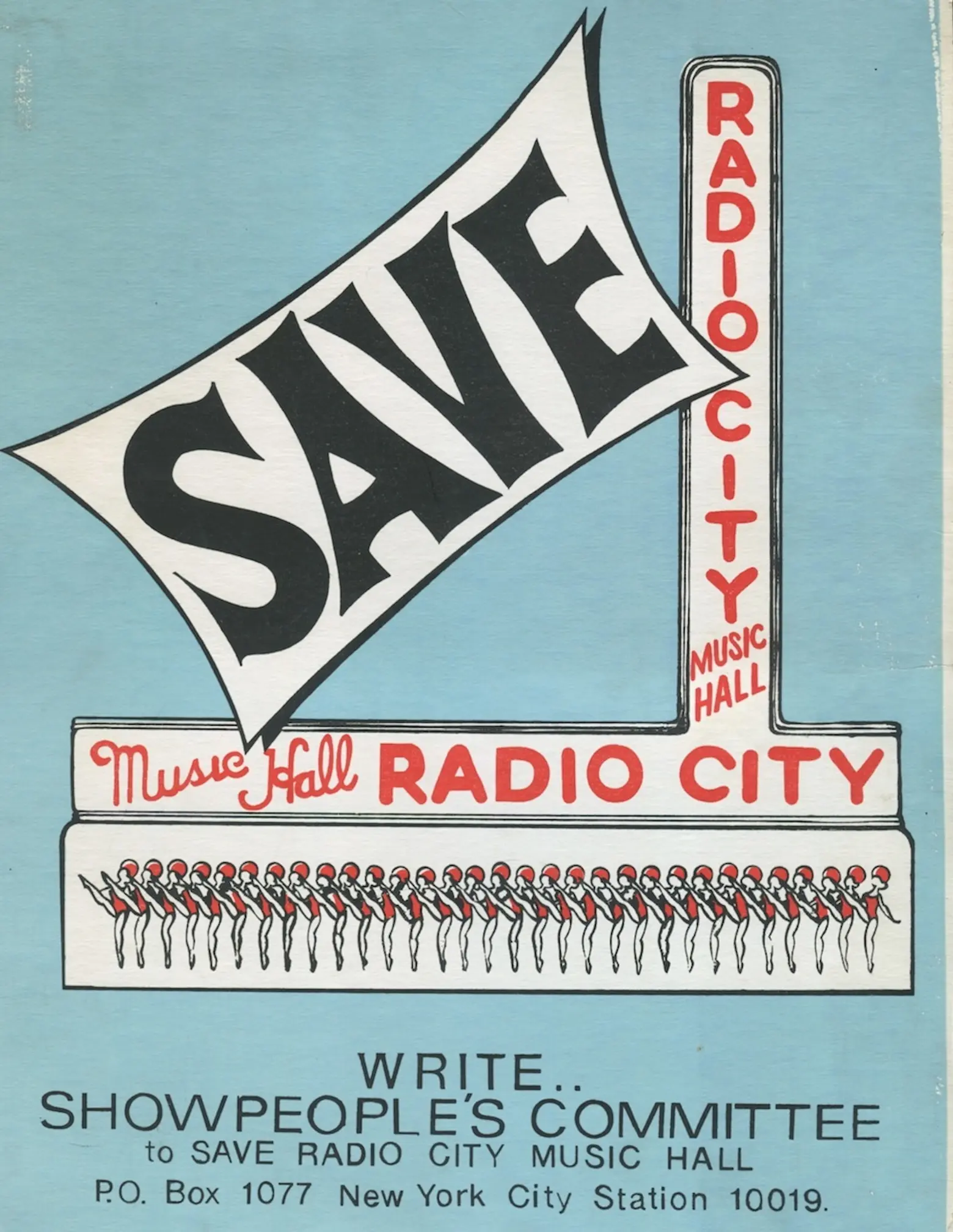 Via William Mearns/Wikipedia
Via William Mearns/Wikipedia
On the morning of March 14th, 1978, the day of the Landmark Hearing, the Committee organized a publicity stunt in the form of an “impromptu” kick line by the Rockettes on the steps of City Hall. This successfully brought immediate attention from reporters who were there to cover the hearing.
In 1979, Radio City was designated a New York City landmark, saving it from the wrecking ball. That year also marked the end of Radio City’s classic movie-and-stage-show format, as the mass showcasing of new films called for a different focus. The Rockettes evolved with the times. By the end of the decade, they were performing with the Swedish-American actress, singer and dancer Ann-Margret in a two-hour television special, “A Holiday Tribute to Radio City Music Hall.”
Radio City re-invented itself with a new format, ditching the movies and presenting 90-minute stage shows instead. The Rockettes danced four or five numbers in each of them, four times a day, seven days a week, for four weeks straight. Then each woman got a week off. The hardworking group also continued to perform in Vegas and Lake Tahoe and appear on television.
Every year the Rockettes presented their Christmas Spectacular and Easter Extravaganza, with new routines and costumes designed by various choreographers and designers. A restoration of Radio City that lasted through the 1990s restored every last detail of the theater, bringing it back to its 1932 glory. In the effort to design the perfect sound system for the troupe, the Rockettes began wearing custom dance shoes with a special cavity within the heel for a sound transmitter. To this day, what the audience hears is the actual rhythmic tapping of 72 feet. The Rockettes made their Christmas Spectacular debut–with Santa in tow–inside the newly re-opened Radio City in 1999.
By the 75th anniversary of the troupe, more than 10,000 women had performed as a Radio City Rockette. Under Linda Haberman, the first woman named solo director and choreographer for the Rockettes in 2006, the group was transformed into a contemporary dance company. As the Rockettes’ history notes, “Haberman’s amazing choreography brought the troupe to new heights, and demanded superb dance technique as well as true athleticism.”
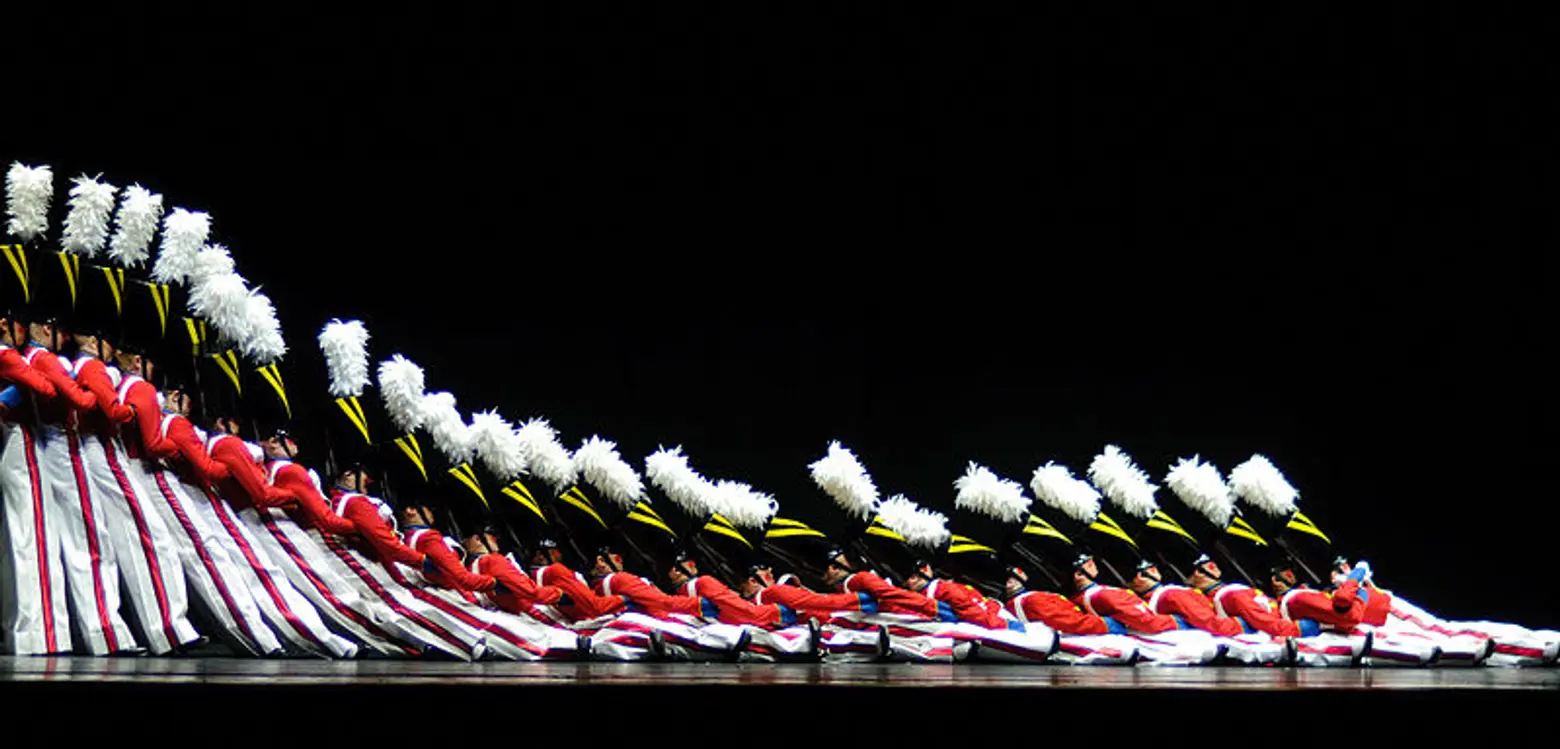 Rockettes perform March of the Wooden Soldier, via Wikimedia Commons
Rockettes perform March of the Wooden Soldier, via Wikimedia Commons
Since the 1990s the Rockettes only performed at Radio City Music Hall from November to January in the Christmas Spectacular. But that changed in Spring 2015, when they starred in a new eight-week production, The New York Spring Spectacular. One thing is for sure in all the years of performing and evolution of the group: the troupe goes way beyond being a fixture of Christmas in New York. The Rockettes are part of the city’s year-round identity, through and though.
RELATED:
Get Insider Updates with Our Newsletter!
Leave a reply
Your email address will not be published.
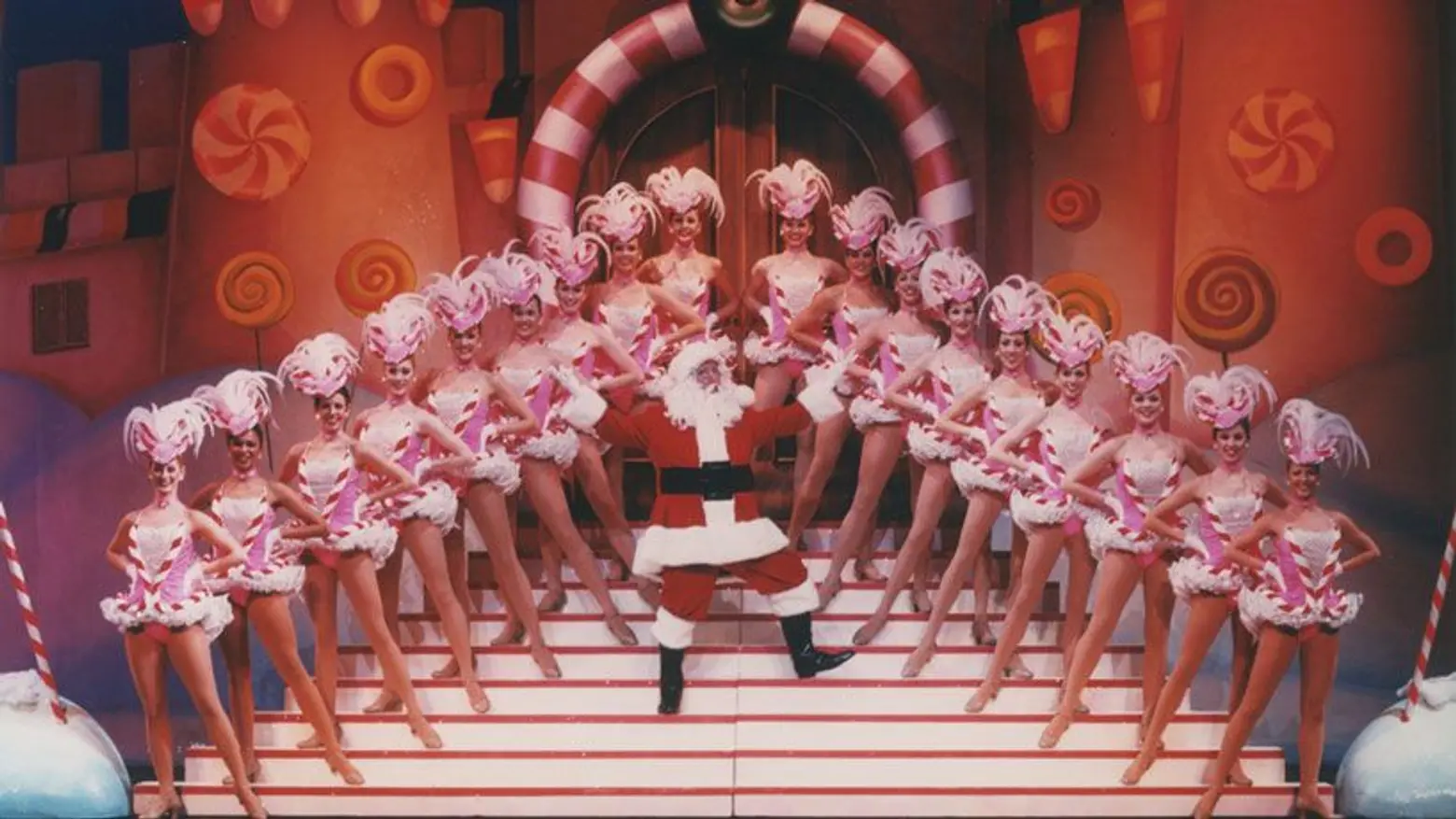
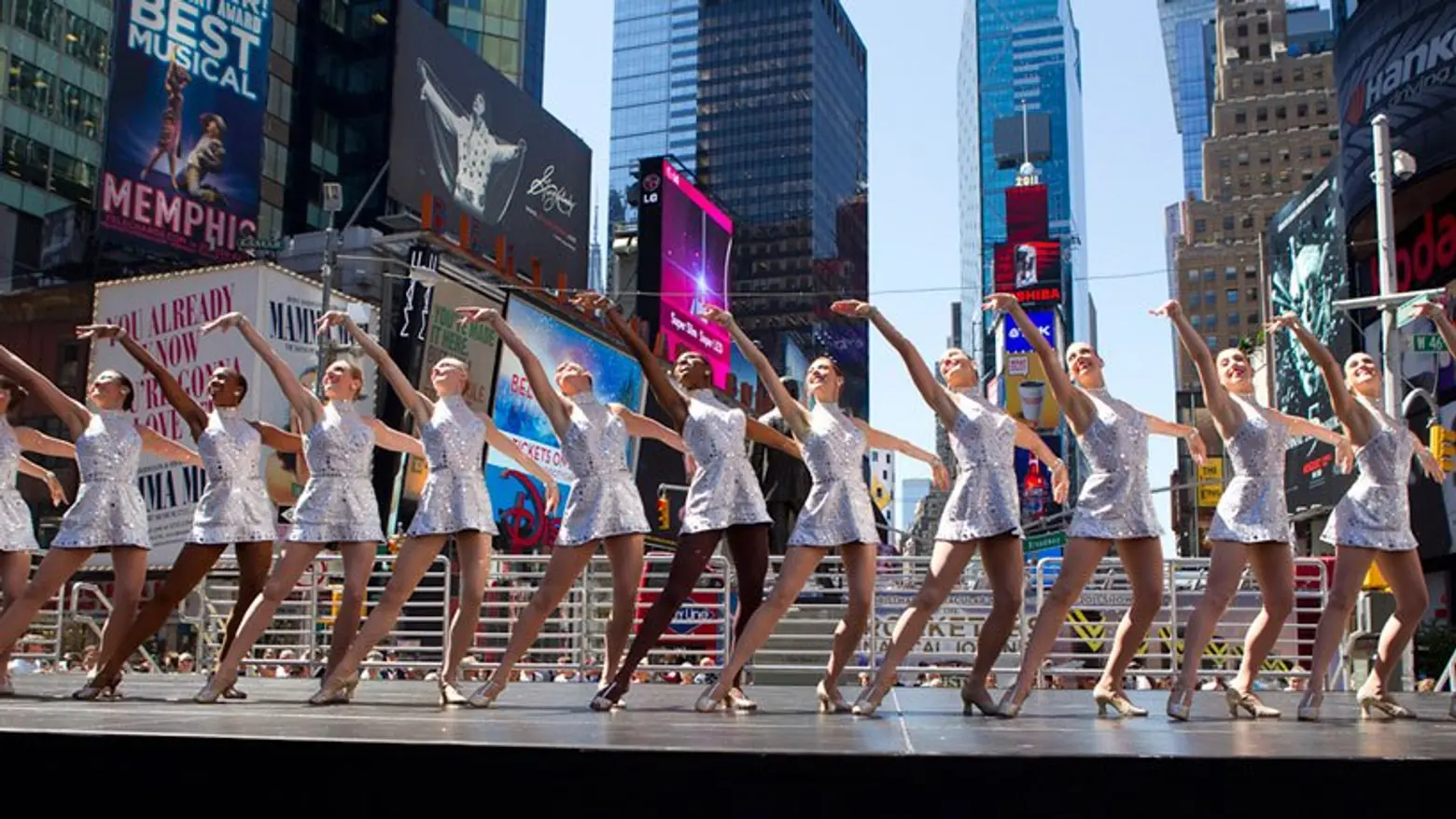
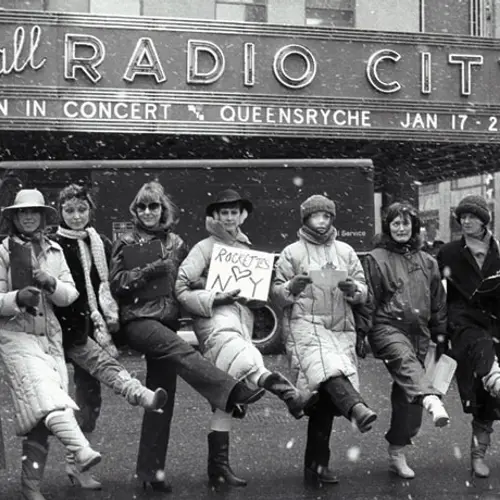
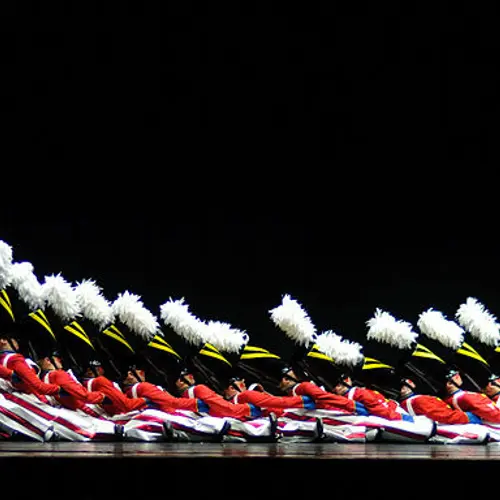
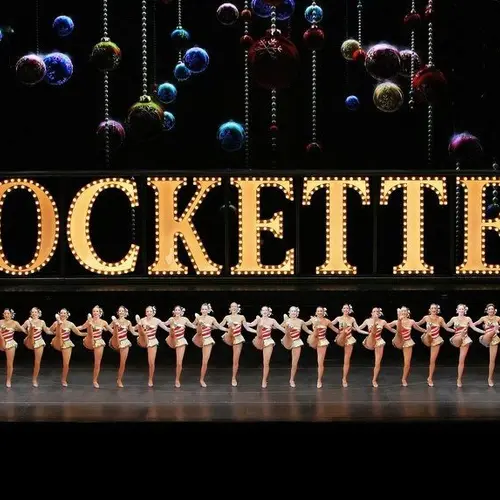
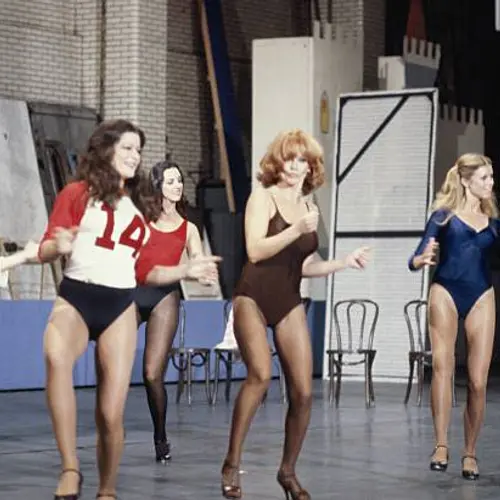
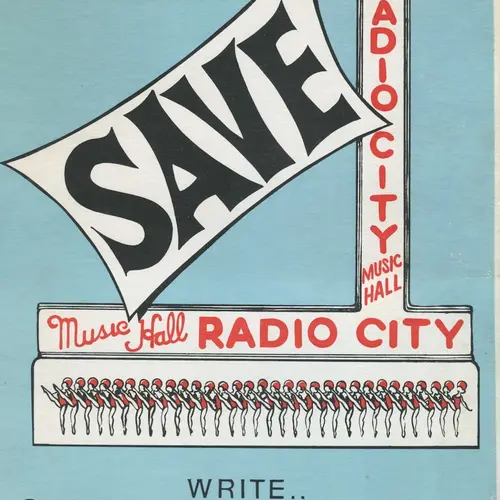
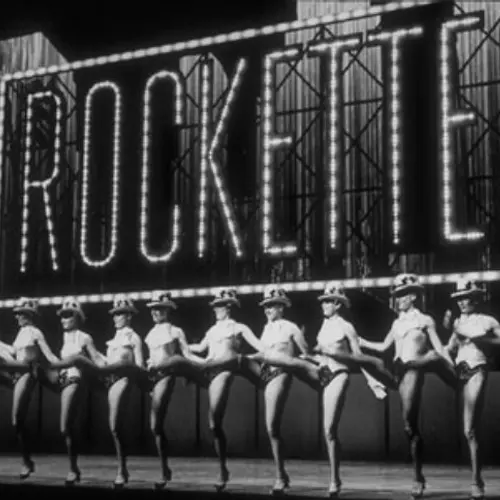
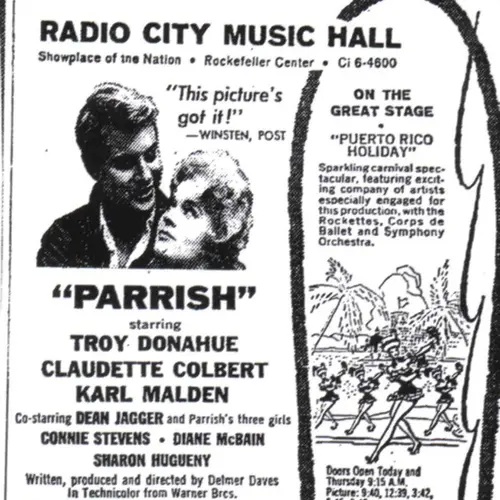
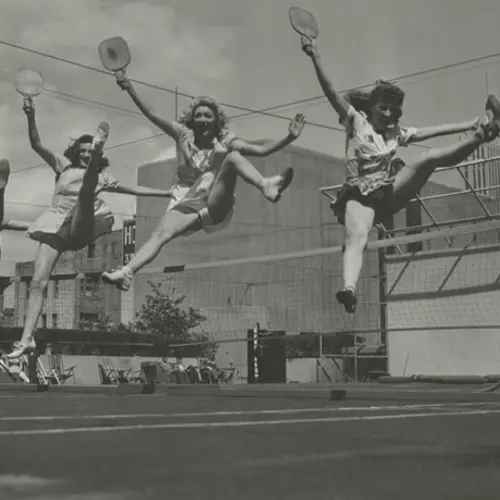
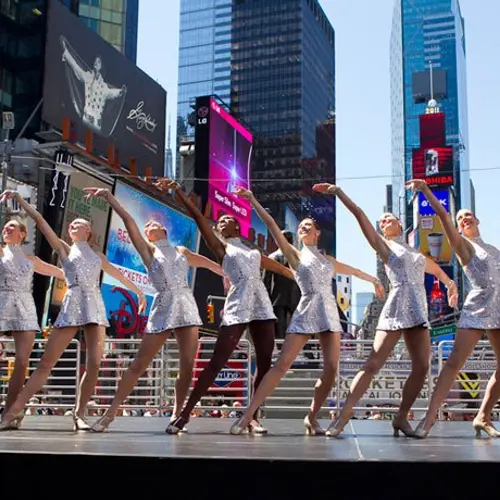
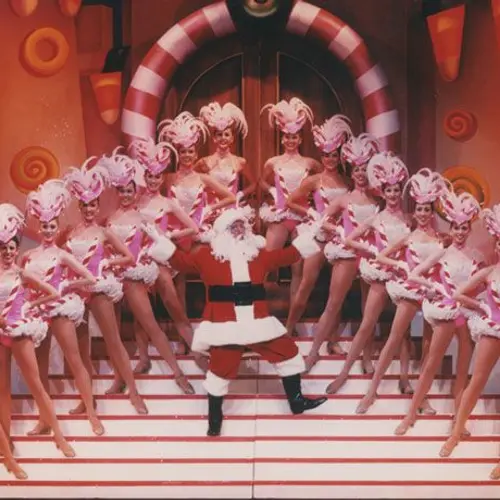
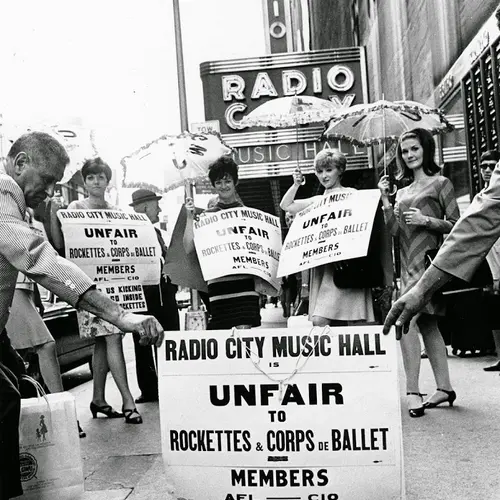
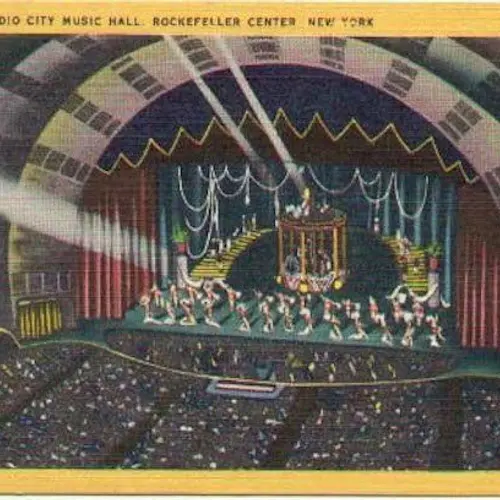
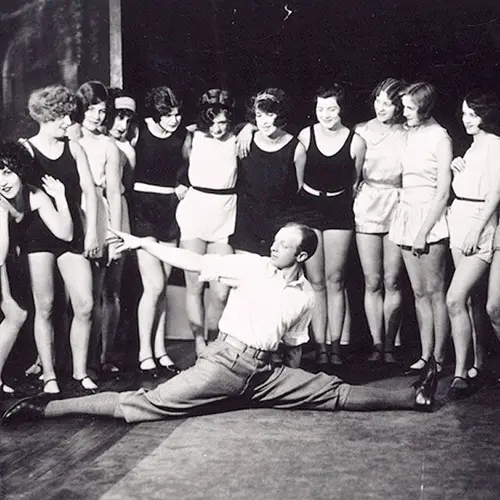
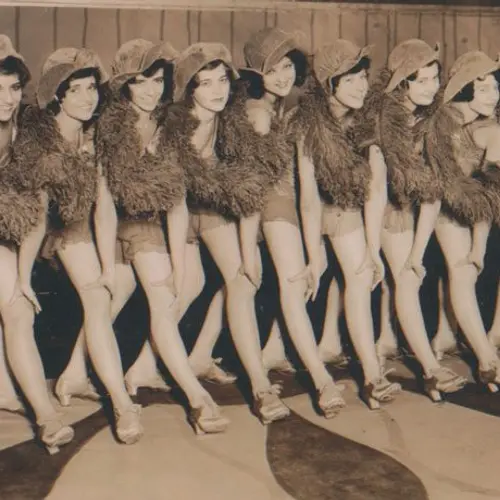











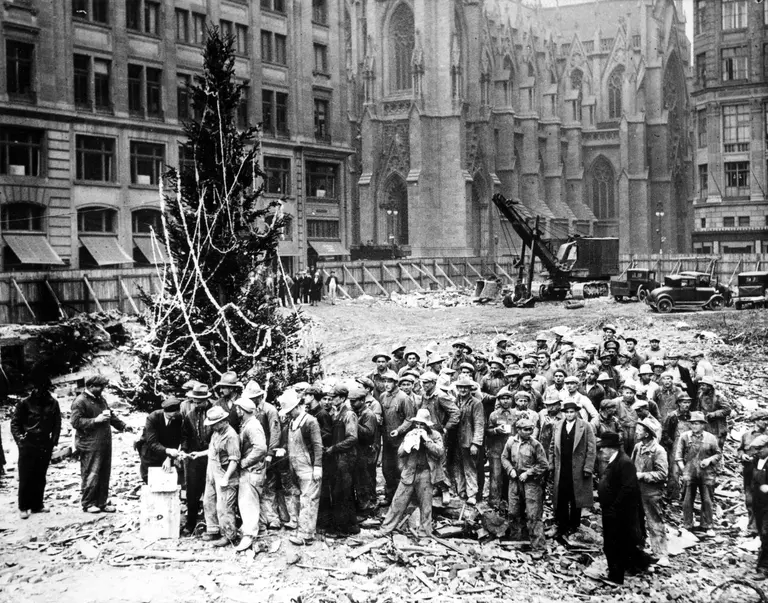

















Let’s hear it for revisionist history. This leaves out the Roxy Theater, with its entrance at the corner of 7th Avenue, original home to the Roxyettes; see:
https://en.wikipedia.org/wiki/Roxy_Theatre_(New_York_City)
“The Roxy presented major Hollywood films in programs that also included a 110-member symphony orchestra (the world’s largest permanent orchestra at that time), a solo theater pipe organ, a male chorus, a ballet company and a famous line of female precision dancers, the ‘Roxyettes’.
“In 1932, Rothafel left the theater named for him for Rockefeller Center where he opened the new Radio City Music Hall and RKO Roxy theaters. Most of the Roxy’s performers and artistic staff moved with him to the Music Hall… The Roxyettes went on to greater fame at the Music Hall, becoming the Rockettes in 1935.”
Here’s a photo of the Roxy Movie House, the original name for Radio City Music Hall. That’s the 6th Avenue Elevated train line in the foreground:
https://uploads.disquscdn.com/images/a0b043c19f4349f169276aabeb2c1b9e8cf0bd9a027934dadba3b1927171def7.jpg